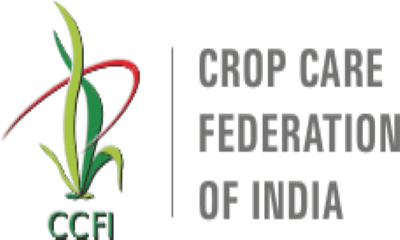It is expected that Dr. T. P Rajendran Committee would examine the reasoning given by the Technical team and consider the industry recommendations before submitting their final report .

The Crop Care Federation of India (CCFI) has defended 17 of the 27 molecles proposed to be banned under the 'Draft Banning of Insecticides Order 2020'.
The draft order was to be considered after expiry of 45 days from the date on which the copies of the Gazette of India containing this order are made available to the public.
Furthermore, the caption notification date 14-05-2020 containing the Draft ban order was extended vide order dated 21-07-2020 passed by the High Court of Rajasthan.
The Central Government constituted an expert committee under the chairmanship of Dr. T. P Rajendran. (Dr. Rajendran Committee) to consider the objections and suggestions received by them.
CCFI members defended 17 of the 27 molecles proposed to be banned. List of 17 prohibited molecules are as under:
Insecticides
Herbicides
Fungicides
Even during Covid-19 pandemic where India was grappling the several problems including rising Covid- 19 cases, loss of manufacturing, dwindling businesses , job losses, migrant rehabilitation etc. it was felt the draft ban order would adversely affect Indian agriculture, economy, business and food security.
Rationale of proposed ban
It was also submitted that the proposed ban was not based on any scientific, rationale or cogent basis but on misconceived and unsubstantially created notions being influenced by data borrowed from the website of the NGOs without any independent scientific investigation, evaluation and patently without application of mind.
Several counter points like mere purported ban of molecules in another country cannot become the basis for an automatic ban of the molecules in India.
CCFI was of the view conditions such as pest incidence, area under cultivation under different crops, weather and climatic conditions, food security needs and socio economic conditions play a vital role in any decision making.
Another reason given is that alternative is purportedly available for use. Availability of alternative can never be the reason to ban an insecticide. It is worth noting that newer molecules are 2.5 times more expensive then the generics proposed to be banned.
These molecules in India have been used extensively for over decades with no safety risks.Their usage is for pandemics like locust attack, construction activities, termite control besides public health.Most of them are established generic molecules, efficacious, cost effective and well accepted by the farming community.
FAO guidelines advice each country to consider own peculiar condition for deciding whether or not to allow a molecule to be permitted, have been giving a complete go by.
“These 27 molecules have over 130 formulations and combinations. The ban would jeopardize business of approx. Rs. 15500 crore in the domestic market and exports”
Crop Care Federation of India took up this issue molecule by molecule and furnished desired additional information to Ministry of Agriculture giving technical, commercial and logical argument in defence of these 17 molecules.
It is expected that Dr. T. P Rajendran Committee would examine the reasoning given by the Technical team and consider the industry recommendations before submitting their final report which is likely to be expected by early December 2021,
The committee needs to keep in view the capability and capacity of the indigenous industry in their commitment for MAKE IN INDIA towards Atmanirbhar Bharat.
Subscribe to our newsletter & stay updated.